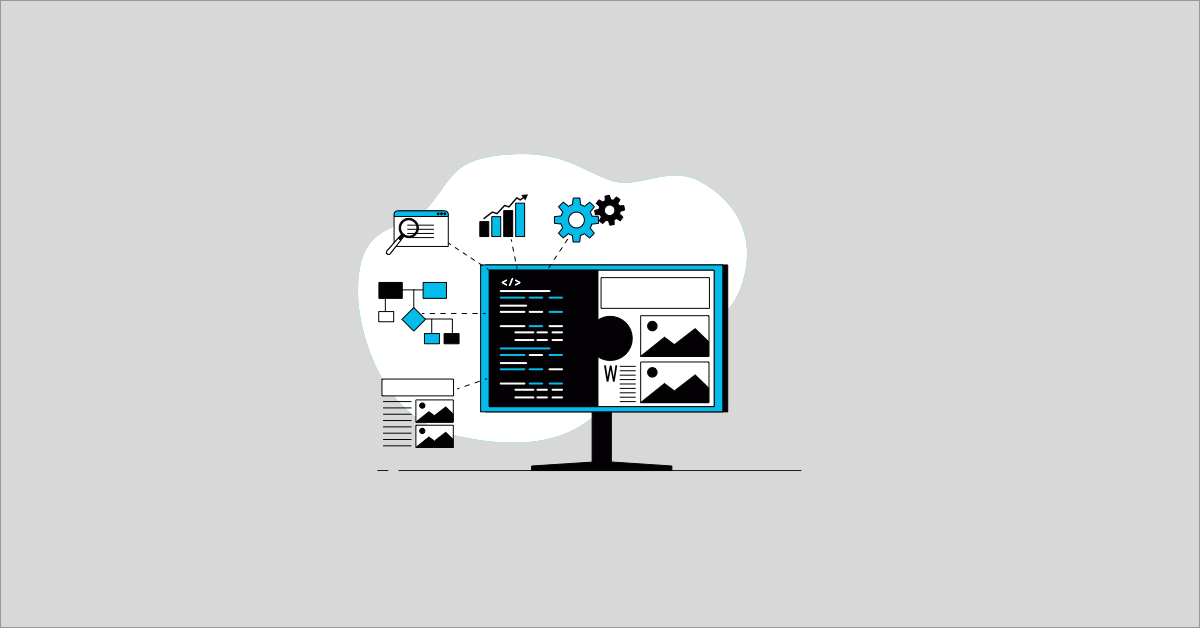Development teams are looking for ways to streamline their workflows, and automation testing is a game-changer in this area. Manual testing can be time-consuming and prone to errors, but automation testing uses scripts and tools to run tests repeatedly, making the process faster and more efficient.
Automation testing is not only about speed. It also significantly improves software quality, helping teams identify bugs earlier and shipping more stable releases. It’s cost-effective in the long run, enabling businesses to scale their testing efforts without dramatically increasing operational costs.
Automation testing services are an effective solution for organizations looking to enhance their software testing capabilities. By leveraging these services, companies can access expert-driven tools and resources designed to optimize testing processes and deliver high-quality software efficiently. This comprehensive guide will explore the different types of automation testing services available and what factors to consider when choosing a provider.
Understanding Automation Testing Services
Automation testing services cover a wide range of testing types, each addressing specific needs in software development.
1. Functional Testing
Functional testing focuses on verifying that a software application works as intended by validating each feature against the specified requirements. Automation works particularly well for functional testing because it consistently and efficiently runs repetitive tests, such as verifying login processes or form submissions.
2. Performance Testing
Performance testing evaluates how well an application performs under different conditions, such as high traffic or extended use. Automation tools can simulate heavy user loads, allowing teams to identify bottlenecks and performance issues that could negatively affect the user experience. By automating this process, businesses gain insight into system stability and can address performance problems before they become critical.
3. Regression Testing
Automated regression testing allows teams to consistently verify the stability of their software throughout its lifecycle. When new features are added or bugs are fixed, regression testing helps confirm that existing functionalities remain unaffected. This type of testing is often repetitive and time-consuming if done manually, but automation dramatically speeds up the process.
4. API Testing
API (Application Programming Interface) testing focuses on validating that the software’s backend and integration points function as expected. Automated API testing is highly valuable because it facilitates rapid testing of data exchanges between different systems, enabling smooth communication across various platforms and services.
5. Mobile App Testing
Mobile app testing evaluates how an application behaves across different devices, operating systems, and network environments. Automated tools are critical for managing the wide range of configurations that exist in the mobile landscape, allowing teams to test efficiently across multiple devices and conditions without manual intervention.
6. Security Testing
Security testing is essential in today’s environment of growing cyber threats. Automated security tests help identify vulnerabilities in an application’s code, architecture, and behavior. By automating these checks, organizations can proactively monitor for weaknesses and address them before they are exploited.
Benefits of Outsourcing Automation Testing Services
Outsourcing automation testing services offers several distinct advantages for organizations aiming to improve their software development processes.
1. Access to Specialized Expertise
Outsourcing gives companies access to seasoned QA professionals with extensive experience in automation tools, testing frameworks, and industry best practices. These experts bring a wealth of knowledge that helps refine testing processes, using the most effective techniques and tools to detect issues early in the development cycle.
2. Cost Savings
Building an in-house automation testing team can be expensive. It requires hiring specialized staff, investing in tools, and maintaining infrastructure. Outsourcing allows organizations to avoid these upfront costs by leveraging the resources of a dedicated testing provider. With flexible pricing models, companies can pay only for the services they need, reducing long-term costs while maintaining high-quality results.
3. Faster Time-to-Market
Automation testing providers can often accelerate testing cycles thanks to their deep expertise and access to the latest tools. This efficiency reduces the time spent on repetitive testing tasks, freeing up internal resources to focus on core product development. As a result, businesses can meet tight deadlines and release high-quality software faster.
4. Improved Quality and Reliability
When experienced professionals handle testing, the quality and reliability of the software improve. Outsourcing helps teams implement automated tests that are designed and executed optimally, catching more bugs earlier in the development process. This leads to more stable and reliable products, enhancing the user experience. Additionally, continuous testing lets teams identify issues at every stage of development, maintaining consistent quality throughout the software lifecycle.
5. Scalability and Flexibility
Outsourcing allows companies to scale their testing efforts based on project demands. Whether the workload increases due to new features or decreases after a major release, automation testing providers offer flexible services that adapt to a company’s needs. This level of scalability helps businesses maintain efficient testing processes without overextending their internal teams.
Key Considerations for Outsourcing Automation Testing Services
When outsourcing automation testing services, several factors help foster a smooth and successful partnership.
1. Data Security and Privacy
Since software testing often involves handling sensitive data, it’s essential to verify that the outsourcing partner follows strict data security protocols. Companies should assess the provider’s security certifications, data protection policies, and compliance with industry regulations to avoid potential breaches or misuse of data.
2. Communication and Collaboration
Clear and consistent communication is crucial for any outsourced project. Look for providers that prioritize open lines of communication and effective collaboration tools. Regular updates, progress reports, and access to testing documentation help keep all stakeholders aligned and minimize misunderstandings.
3. Project Management and Reporting
Effective project management is key to staying on track with deliverables and timelines. The provider should offer robust reporting mechanisms that allow clients to monitor testing progress, results, and any challenges that arise. This transparency enables teams to quickly address issues and adapt strategies when necessary.
4. Service Level Agreements (SLAs)
SLAs are vital in defining the expectations and performance metrics of the outsourced service. When outsourcing automation testing, the SLA should outline key performance indicators (KPIs), timelines, and quality standards. A well-structured SLA establishes accountability and helps manage expectations on both sides.
5. Exit Strategy
Companies need a clear exit strategy in place should the outsourcing relationship end. Make sure the contract outlines how testing data, tools, and other resources will be transitioned back to the company, minimizing disruptions and safeguarding critical information.
Selecting the Right Automation Testing Service Provider
Choosing the right automation testing service provider is critical to creating a successful partnership.
Request References and Case Studies
Ask for case studies and client references that demonstrate the provider’s expertise in automation testing. Reviewing past projects can provide insight into their ability to handle similar challenges and deliver quality results.
Conduct Thorough Due Diligence
Before making any commitments, conduct a thorough evaluation of the provider’s reputation, industry experience, and capabilities. This includes checking their technology stack, certifications, and the expertise of their testing team.
Assess Alignment with Organizational Goals
The provider’s approach should align with your company’s objectives and workflows. Whether you prioritize faster releases or enhanced software quality, the provider should fully understand your goals and be able to tailor their services accordingly.
Negotiate Favorable Terms and Conditions
Negotiating a clear, comprehensive contract is essential. Define service expectations, timelines, pricing models, and any performance guarantees in detail. This clarity helps prevent misunderstandings and sets the foundation for a productive, long-term relationship.
Case Studies of Successful Automation Testing Projects
Automation testing has transformed software development for many companies, enabling them to deliver high-quality products efficiently.
Case Study 1: Spiffy
Spiffy, an on-demand car care service, was experiencing issues with the scalability of its platform. Their existing manual testing process couldn’t keep up with the rapid pace of updates and new feature releases. Spiffy turned to automation testing to address these challenges. By partnering with MuukTest, Spiffy implemented automated functional and regression testing, which helped them catch critical bugs early in development and reduced the time spent on repetitive testing tasks. As a result, Spiffy’s development team could release updates faster, improve the stability of their platform, and enhance the overall customer experience.
Case Study 2: Pienso
Pienso, a machine learning platform for nonprogrammers, needed to maintain the quality and reliability of their complex system while scaling their development efforts. Manual testing was proving inefficient, and their team required a solution that could handle the growing complexity of their platform. MuukTest introduced comprehensive automation testing services, allowing Pienso to continuously validate their platform’s performance and functionality. This automated approach accelerated their release cycles and improved software quality, helping Pienso provide a more reliable and user-friendly product.
Conclusion
Automation testing is an important component of modern software development, offering significant improvements in efficiency, quality, and scalability. By partnering with the right automation testing service provider, organizations can accelerate their release cycles, reduce costs, and deliver more reliable software. Whether it’s functional, regression, or performance testing, outsourcing these tasks to experienced professionals allows teams to focus on their core development efforts while maintaining high standards of quality.
Automation testing can solve complex challenges and drive better results. For organizations looking to optimize their testing processes, outsourcing automation testing services could be the key to achieving faster, more reliable software development.




%20(1).png?width=150&height=69&name=MuukTest-logo---light-background%20(3)%20(1).png)

